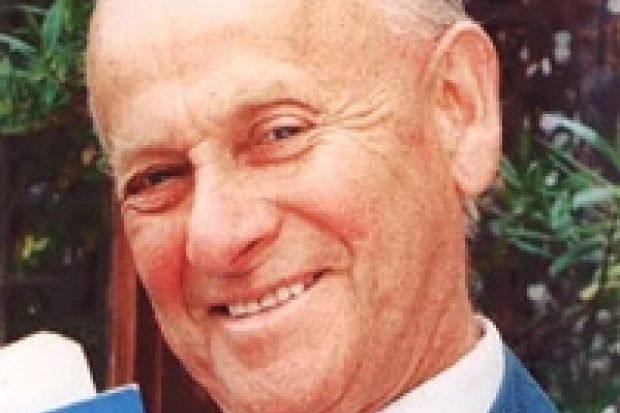A registrar who served the University of Bristol in various roles for almost 40 years - including seeing the institution through a period of student unrest - has died at the age of 87.
Evan Wright was born in Lancashire on 12 May 1924. He was educated at Fleetwood Grammar School and the University of Liverpool, although his studies were interrupted in 1943 by service in the Navy, and he commanded a landing craft during the D-Day landings.
The end of the Second World War gave Mr Wright an opportunity to return to university for a degree in philosophy, politics and economics at Magdalen College, Oxford.
He then entered university administration as a graduate assistant at Oxford, before moving in 1951 to the University of Bristol, where he would spend the rest of his career.
Appointed assistant registrar and secretary, he was later promoted to deputy registrar and secretary and eventually served as registrar and secretary from 1973 until his retirement in 1988.
Mr Wright played a major role in planning and implementing cuts at the university in the early 1980s, following a 15 per cent reduction in the university's funding. But perhaps his greatest challenge at Bristol came in 1968.
As student protests spread from Paris to universities in the UK, Bristol's Senate House was occupied for a week.
While accepting students' right to protest, Mr Wright was also convinced that their idealism was often exploited by outsiders pursuing their own agendas.
He not only proved instrumental in bringing the Senate House occupation to an end but was also widely consulted by peers at other universities about the most effective legal means of dealing with sit-ins.
Even in retirement, Mr Wright retained close links with the university as a representative of the institution's court and as part of a group, consisting mainly of emeritus professors, who met regularly at the Bristol Guild.
They persuaded him to revisit an undergraduate dissertation on "confluent patterns in process" and have it published as a book under the title Life, Prescription and Value in 1994.
For Michael Parry, who succeeded him as registrar, Mr Wright was notable for "a phenomenal memory", "a close eye for detail" and "a developed sense of justice".
"He ran a lean and hard-working administration, believing that what funds the university had at its disposal were best concentrated on its academic activities."
Mr Wright died of bronchopneumonia and rheumatoid arthritis on 8 April. He is survived by his wife Mary and two daughters.
